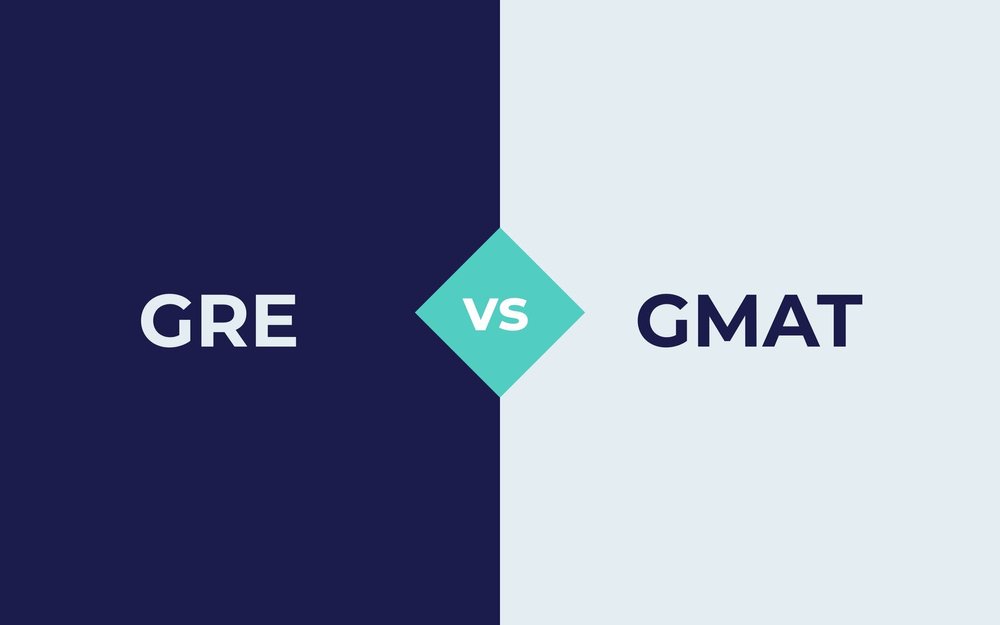In the fast-paced world of MBA admissions, keeping up with the latest changes to standardized tests is essential. The GMAT (Graduate Management Admission Test) and GRE (Graduate Record Examination) are two of the most popular exams for aspiring business school students.

Sangita, a highly experienced professional with 25 years of expertise in various aspects of admissions, talks about the recent developments in the GMAT and GRE & changes in the GMAT Focus Edition. Particularly in helping candidates gain admission to top schools, including M7 and leading European institutions.
GMAT Focus Edition
Are you gearing up for the competitive world of MBA applications and looking to conquer the GMAT? If so, the GMAT Focus Edition might be your secret weapon. The GMAT Focus Edition has introduced some significant changes that set it apart from the traditional GMAT format.
1. Streamlined and Precise: The GMAT Focus Edition is laser-focused on the business side of education. With a reduced total duration of two hours, this edition aims to get you in and out of the testing center with a score that can open doors to top business schools.
2. Verbal Focus: In the verbal section, the GMAT Focus Edition emphasizes verbal reasoning, with the traditional reading comprehension and critical reasoning questions remaining largely unchanged. Test-takers are granted 45 minutes to tackle 23 questions in this section, giving you the opportunity to showcase your language and analytical skills.
3. Data Insights: Bid farewell to data sufficiency questions and welcome the "Data Insights" section. This new edition focuses on data interpretation, with questions covering numeric and verbal data. In this section, multi-source reasoning, tables, graphs, and two-part analysis questions await you.
4. A Flexible Approach: The GMAT Focus Edition offers more flexibility in the order of sections, allowing you to adapt your test-taking strategy to your strengths and preferences. This newfound freedom ensures that you can perform at your best.
5. Post-Test Score Choices: Another significant change is that you can now choose to send your scores to colleges after viewing them. This feature allows you to decide which scores best represent your abilities. Scores from both versions are valid for five years.
6. Enhanced Score Report (ESR): With the GMAT Focus Edition, an Enhanced Score Report is now included with registration. This offers detailed performance analytics, helping you understand your strengths and areas for improvement.
7. Geometry-Free Zone: The GMAT Focus Edition has bid farewell to geometry questions in the quantitative section. In addition, one section prohibits the use of calculators. This change means that you'll need to rely on your algebra and arithmetic skills to excel.
8. Score Range Adjustment: The score range for the GMAT Focus Edition has been adjusted to 205-805, reflecting the evolving nature of the exam and its alignment with the needs of test-takers and educational institutions.
9. Evolving Interpretation: It's worth noting that universities are still adapting to the new scoring system. While the changes bring exciting opportunities for applicants, there is uncertainty about how schools will interpret the new scores.
10. Transition Period: During the transition period, both the old and new versions of the GMAT will be available. This provides some flexibility for those who have already started their GMAT journey.
GMAT vs GRE: Which One Is Right for You?
The GMAT Focus Edition is a game-changer, but how does it compare to the GRE? Both tests have merits; your choice should align with your unique circumstances and aspirations. Here's a quick comparison:
GMAT:
-
Business School Favoritism: The GMAT remains the preferred choice for business schools.
-
Abundance Availability of Practice Materials: GMAT test-takers benefit from a wealth of available practice materials, including free questions and tests.
-
Balanced Skill Assessment: It offers a relatively balanced test of verbal and quantitative skills, making it suitable for those aiming to excel in both areas.
-
Vocabulary vs. Reasoning: Unlike the GRE, the GMAT focuses less on vocabulary and more on reasoning within sentences.
GRE:
-
Vocabulary Emphasis: The GRE emphasizes vocabulary, which may appeal to students with strong language skills.
-
Format Evolution: The GRE format has recently changed, featuring two verbal sections and no separate analytical writing. This revamped format is shorter and does not include an unscored section.
-
Adaptive Approach: The GRE is adaptive, but it operates slightly differently from the GMAT's adaptive format.
-
University Acceptance: Many universities accept both GMAT and GRE scores. Check the admission requirements of your target schools.
For a more detailed comparison, read this blog.
Proven Strategies to Improve Your GMAT/GRE Score
1. Track and Analyze Mistakes: Maintain a log of questions answered incorrectly. Identify the type of mistake (content-related, misreading, or conceptual) and tailor your approach accordingly.
2. Correct Your Process: Address the root cause of your mistakes. If it's a misreading issue, focus on improving your reading skills. For conceptual errors, revisit the core concepts.
3. Avoid Mindless Practice: Don't fall into the trap of mindlessly practicing questions. Address your weaknesses and develop effective processes before moving on to new material.
4. Prioritize Your Strengths: Concentrate 80% of your effort on mastering your strengths. Strengthening your strong areas is vital for maximizing your score.
5. Manage Time and Anxiety: Practice time management and pacing. Avoid lingering too long on a single question, leading to panic and negatively affecting subsequent questions.
6. Consistent Practice: Regular practice is key. Structure your preparation into accuracy, time and structure, and full-length tests to build confidence and stamina.
7. Prepare for R2 Deadlines: If facing tight application deadlines, remember that the application process and test preparation can overlap. Start working on your essays and application materials early to ensure everything is in place.
As you embark on your MBA journey, stay informed and adaptable. With the right approach and preparation, you can unlock the door to your dream MBA abroad. If you're eager to delve deeper into these insights, watch the full webinar episode on YouTube.
